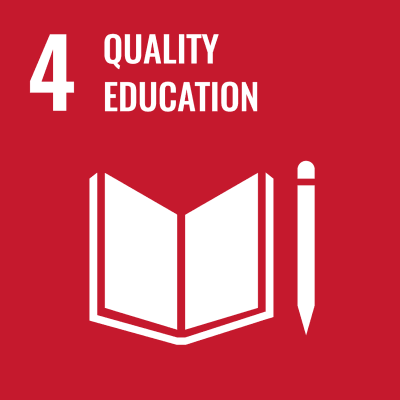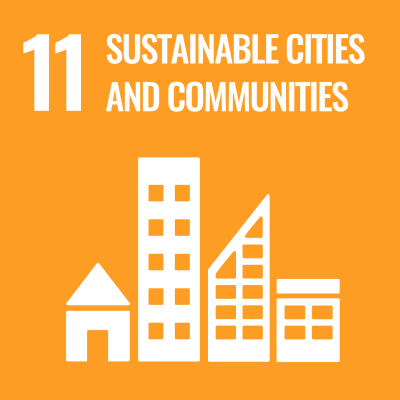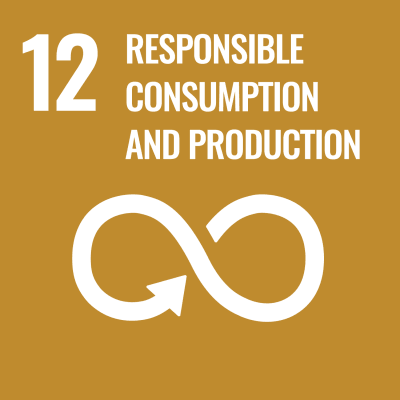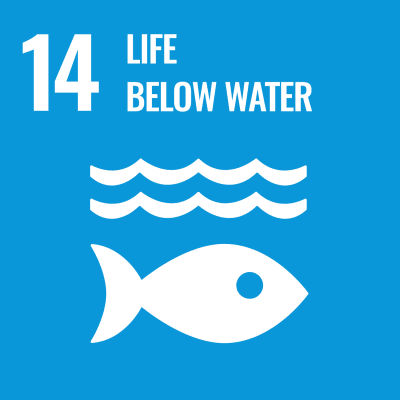-
Faculty of Education, Department of Primary Education
- Professor
- Junko SAITO
- Research Field
Art education
- Keyword(s)
Skill for expressive arts, Art apuureciation, Development of teaching materials
- Research theme
-
- Development of teaching materials and instructional methods for acq
- Development of teaching materials to foster diverse views and ways of thinking
- Methods of teaching appreciation to enhance expressive ability
- Development of color teaching methods (traditional Japanese colors, etc.)
Outline of research activities
My research is a practical study based on the reality of children’s thinking and expression as seen from the school site. Arts and crafts is a subject that deepens awareness of diversity. I will develop teaching materials that aim to foster diverse ways of seeing and thinking and the acquisition of expressive skills. I will propose teaching methods that aim to improve children’s ability to think and create figuratively through learning from each other.

- Desired cooperation
-
- Research on arts and crafts classes at schools
- Art Appreciation Education with Museums
-
Faculty of Education, Department of Primary Education
- Professor
- Tadashi MATSUOKA
- Research Field
Sociology of education, Sociology, Pedagogy
- Keyword(s)
Socialization, Delinquency, Student counseling and guidance, Educational problems
- Research theme
-
- Influence of the parent in the normative consciousness acquisition process
- Roles of the school as the socialization system
Outline of research activitiesI study the deviation and the comformity in the human’s socialization process through inventory survey and interviews about delinquency and family relations in combination. Now I am interested in a correlation between spur-of-the-moment-act and emotion dysregulation. Furthermore, I am deeply interested in practical problems such as the way of student guidance, the vocational counseling (class instruction, tutorial) , a social hierarchy and the inequity of the learning opportunity.

- Desired cooperation
-
- Functional inorganic/organic materials
- Biological molecules such as protein, sugar, lipid, cell etc.
-
Faculty of Education, Department of Primary Education
- Associate professor
- Hiroyuki YAMASHITA
- Research Field
Science Education, Field Learning, Biology Education, Earth Science Education
- Keyword(s)
Teaching Material Development, Disaster Prevention, Quantitative Experiments
- Research theme
-
- Development of model teaching materials that relate basic flow velocity principles and natural disasters
- Development of the instruction method to be introduced field learning into in earth science education
- Development of quantifiable teaching materials using optical methods, etc.
Outline of research activities
I am mainly researching the development of science teaching materials that can be used in educational sites. In elementary and junior high school science, especially in elementary school science experiments, most of them are qualitative experiments. For example, when investigating the properties of things that are “invisible” to the human eye, such as light and magnetic force, we use relative terms such as “bright” and “strong.” Even in qualitative experiments that rely on bodily sensations, we can “see” the nature of things. However, if we can compare this experience with numerical values such as “how bright” and “how strong”, we will be able to “see more” what we “see” until now. Experiments that compare numerically like this are called quantitative experiments. When we can “visualize” the properties of things with these educational materials, we are sure that the observer’s eyes will have a higher resolution and be moved by the wonder and charm of the natural world. We are conducting research on the development of teaching materials that can be “more visualized” in various fields of science education.

- Desired cooperation
-
- Development of model teaching materials related to disaster prevention
- Development of educational programs to understand the morphology and structure of vertebrate bones
- Development of educational programs using self-made reflectometers, self-made specific polarimeters, self-made nephelometers, etc.
-
Faculty of Education, Department of Primary Education
- Associate professor
- Kazuaki KITAHARA
- Research Field
Physical education method
- Keyword(s)
Play, Sports, Health, Lifetime sports, EBE
- Research theme
-
- Making evidence-based physical education classes
- Differences in class views between children and educators
- Elementary and Junior High School Continuity
Outline of research activities

It is said that physical education classes are relatively popular with children and students, and that they are highly independent in these classes.It is true that this has been supported by the diligent research of teaching materials by in-service teachers and the development of teaching methods.
However, in the in-service teachers differentiation according to individuals and groups is required because.However, the development of teaching materials and the choice of teaching methods are becoming half-implicit knowledge.I am trying to systematize the enormous teaching methods of in-service teachers that have been cultivated so far.As such, I hope to make teacher behavior explicit knowledge.- Desired cooperation
-
- Social education
- Lifetime sports
- Lesson research
-
Faculty of Education, Department of Primary Education
- Associate professor
- Miho IMOTO
- Research Field
Music Education
- Keyword(s)
Music Education, Physical Expression, Creativity
- Research theme
-
- Elucidating the Techniques of Music Teachers Using Multimodal Analysis Techniques
- Music Education in the Nursery School-Elementary School Connection
- Music and Physical Expression
Outline of research activities

Music instruction is conducted not only through words, but also through various non-verbal means of expression, such as eye contact, gestures, and facial expressions. We are collecting and studying objective data on what music teachers look at and how they use their bodies in response to what situations, using eye-gaze measurement devices, motion capture, etc. We are also collecting data on the actual status of music teachers’ nonverbal communication by comparing these data with the results of interviews with teachers. By comparing these data with the results of interviews with teachers, we aim to elucidate the actual state of nonverbal communication among music teachers.
We are also conducting research on the relationship between music and physical expression.- Desired cooperation
-
- Research on the Proficiency of Music Teachers
- Research on Nonverbal Communication in Music Instruction
-
Faculty of Education, Department of Primary Education
- Associate professor
- Shogo HARADA
- Research Field
Home Economics Education
- Keyword(s)
Lesson development, Home life
- Research theme
-
- How to design home economics classes
- How “Home economics” should be as school subjects
- How “Home economics” has changed
Outline of research activities





“Home economics” in school education aims to improve the skill of homemaking through the velationships between oneself and their family, their consumption habit, their eating habit, their dwelling life, their clothing life and so on.
“Home economics” is concerned with not only our claily life but some subjects life social studies and science. Moreover it’s very important to reflect on your home life so far.
I investigate how “Home economics” should be and I design exciting, satisfactory and practical classes.

- Desired cooperation
-
- Designing home economics classes
- Development of teaching materials
-
Faculty of Education, Department of Primary Education
- Associate professor
- Takako DOI
- Research Field
History of Education, Adult Education in England
- Keyword(s)
Workers' Educational Association, Liberal Adult Education, National Union of Teachers
- Research theme
-
- Establishment and development of Workers' Educational Association
- Educational reconstruction in England : argument of WEA and NUT
- The history of Social Studies at the Joint University Council for Social Studies
Outline of research activities


The founding of Workers’ Educational Association (WEA) in 1903 is situated in the social development of the working class organisation and is sustained the rich associational culture. In my research, I apply on the focus to the working-class association which was affiliated with WEA and the adult students who came to class. What was contributed to the educational life of the workers? What was the WEA’s purpose in putting forward the educational reconstruction? I will try to explore this.

- Desired cooperation
-
- lifelong education, further education, continuing education
- History of educational thought
- Modern history in England, Social welfare society
-
Faculty of Education, Department of Primary Education
- Associate professor
- Tomohiko YASUMORI
- Research Field
math, teacher education, teaching ratio learning
- Keyword(s)
math, PCK, teacher education, teaching ratio learning
- Research theme
-
- How to think and think about the ratio of raising in the organization
- Development of human resources for teachers in learning guidance
Outline of research activities
The first point is “How to view and think about the ratio of raising in an organization.” Children in Japan have a big problem in how to think and think about the ratio. Each school is making every effort to overcome this challenge. Therefore, with the aim of providing this support, I am conducting research to cultivate views and ways of thinking about the proportion of children throughout the school organization. As an example, we have organized the points for raising the perspective and way of thinking in any grade, and have developed and visualized a table that shows the systematics of each grade..
The second point is “teacher training for teachers in learning.” In the future, teachers will need to be able to adapt to various learners in a flexible manner and to be able to teach adaptively. In response to this request, I developed a reflection matrix as a self-study tool for young and mid-career teachers to absorb the essence of the learning guidance of experienced veteran teachers and to become adaptively proficient. The matrix reflection method using this tool allows students to grow through self-diagnosis without the need for familiar veteran teachers.- Desired cooperation
-
- Research to foster the way of thinking and thinking about the ratio of arithmetic
- Research on human resource development and proficiency in teachers' teaching
-
Faculty of Education, Department of Primary Education
- Associate professor
- Yayoi OKUMURA
- Research Field
Educational psychology, Clinical psychology
- Keyword(s)
Children's social-emotional development, SEL
- Research theme
-
- Teacher's involvement to support children's social-emotional development
- Development and implementation of SEL programs
- Relation between evaluation of emotion and adaptation
Outline of research activities


I am interested in teacher involvement in supporting children’s social-emotional development. School is not only a place to develop academic skills, but also to promote children’s social-emotional development. So, what kinds of teacher involvement contribute to the development of children’s social-emotional competence? I am collecting and analyzing data on these questions.
I am also developing programs to foster communication skills, etc., with reference to psycho-educational programs that foster knowledge and skills related to the mind and social-emotional learning (SEL). These programs are meant to “prevent” problematic or maladaptive behaviors before they occur. I am also interested in how to utilize such programs in actual educational settings.- Desired cooperation
-
- Data collection and analysis of children's social-emotional competence
- Development and implementation of programs to promote children's emotional development










